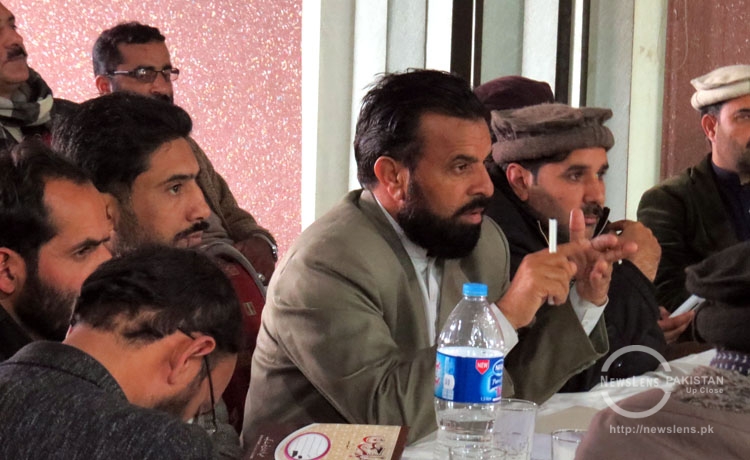
Peshawar: Journalists in Peshawar are sick and tired of their profession due to sluggish growth, low salaries and absence of security to their jobs and lives.
Job security does not only come with having a stable job, it requires a consistent flow of salary to make a worker feel that he or she is part of a steady environment. Most of the media outlets in Pakistan have taken to the habit of not paying adequate salaries to journalists in time. The result is the poor quality of reporting and editorial content. However, it rarely bothers the owners who are running their media houses without proper government oversight or internal mechanism of supervision on the quality of content produced. In fact going by the general attitude, quality is the lowest priority of the electronic and print media in Pakistan. In cities like Peshawar, this reality is rather more stark and bothersome.
Twenty-five daily newspapers are published in Peshawar where approximately 200 journalists are employed. According to Wasim Khattrak a Peshawar-based journalist, unsatisfactory remuneration, and stagnant career path have thrown a spell of sluggishness on the journalists in Peshawar. People are leaving this profession says Khattak and joining the social sector. A profession considered the fourth estate, a watchdog, a conveyor of information to the public, cannot be performed uprightly or diligently if its members are victims of injustice, malpractice and corruption of the newspaper owners.
The only resort left to the journalists is the government. Unless government ensure that journalists are treated just like any other labor force and are compensated and treated likewise, things will keep getting worse.
Because of electronic media and all the glamour associated with it, journalism is being categorized a part of show business. Rehmat Khan, a local journalist from English daily, calls it a mirage. Journalists are not even paid according to the minimum wage regulated by the government i.e. Rs 12,000 per month.
“I feel ashamed to tell about my salary. I have to struggle to pay off the utility bills, house rent and other expenses,” Khan laments to News Lens Pakistan.
Only a handful of newspapers are paying good salary on regular basis to their workers. International newspapers or new agencies are the best indeed in this regard. The rest take their workers for granted says Khattak.
The Wage Board Award was instituted under the Newspapers Employees Act 1973 with the purpose to ensure timely, regular and adequate salaries to the journalists. With the passage of time, like every good thing, the wage board award too ran out of its usefulness. The power of the newspaper owner that was neutralized by the wage board in fact inflated since now they were in more control of the ministry of information. The last wage board dispensed among the journalists was in 2001. The Eighth Wage Board has been given a go ahead however the newspaper owners are dragging their feet in implementing it. In spite of Supreme Court’s order, the ministry of Information has done nothing to put the award into practice.
According to Rana Azeem, President of Pakistan Federal Union of Journalists (PFUJ) the government and the owner of the giant media houses in Pakistan are hand in glove in delaying the award. He says that if the government wants it can implement the Eight Wage Board Award in ten minutes.
“Because a journalist lacks the power to decide which news will go into publication and the control to this effect lies under the thumb of the owner, the government is naturally tilted towards the owners,” says Azeem
The government is completely aware of the plight of the journalists in the hands of the media owners says veteran journalist Imtiaz Alam. The solution he says lies in the hands of the journalists now. All those journalists denied of salaries should quit working and go on indefinite strike. Since journalists keep tolerating exploitation, the owners have become emboldened in the practice of withholding their salaries.
President of the Khyber Union of Journalists (KhUJ) Nisar Mehmood says that the journalists associated with print media are being paid exactly what they had been paid fifteen years ago. In Peshawar, he added an average journalist gets 8,000 per month that does not even equal the minimum wage set by the government. The worst victims of the low pay scale are those associated with Urdu Journalism. Journalists working in English dallies are relatively stable and get good salaries.
KhUJ is also looking after the proceedings of cases in the Tribunal of Newspaper Employees. Mehmood says that delays in the dispensation of justice and prolonged proceedings have added into the sufferings of the journalist while adding more joyous days into the lives of newspaper owners.
Rana Azeem and Imtiaz Alam accuse the government of giving free hand to the owners of the newspapers. They both agree that if today the government links the release of its advertisement payment to the timely release of wages to the journalists, things will begin to improve.
Job security is an alien concept in the field of journalism. The owners could terminate a journalist whenever they want. Abdurrazaq Khan a Peshawar-based journalist told New Lens Pakistan that any journalist who raised voice for the implementation of the Wage Award was removed from his job. The owners have no appetite to tolerate those showing them the mirror.
After the 18th amendment, provinces are responsible for managing their respective media outlets. Therefore, it is the responsibility of the Khyber Pakhtunkhwa government to work for the welfare of journalist community, says Nasir Mehmood.



